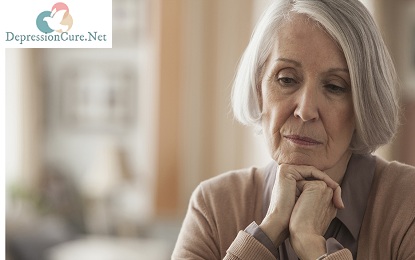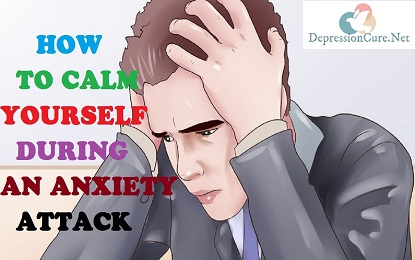Recognizing and Treating Depression in older Adults
Physical weaknesses are easily exposed. But it is difficult to understand the mental problems in this state. (Depression In Older Adults)
The elderly and children need special care. In old age, people become very weak both physically and mentally. In such a situation, their diet must take care of their lifestyle very much.
What mental health issues are common in the elderly population?
Signs & Symptoms of Depression in Older Adults
Recognizing the depression in the elderly starts with knowing the signs & symptoms. Depression red flags include:
- Feelings of despair or sadness.
- Unexplained or aggravated aches a& pains.
- Loss of interest in hobbies or socializing.
- Weight loss or loss of appetite.
- Feelings of hopelessness.
- Lack of motivation & energy.
- Sleep disturbances (difficulty falling asleep, oversleeping, or staying asleep, or daytime sleepiness).
- Loss of self-worth (self-loathing, worries about being a burden, or feelings of worthlessness).
- Slowed movement or speech.
- Increased use of alcohol or other drugs.
- Fixation on death; thoughts of suicide.
- Memory problems.
- Neglecting personal care (skipping meals, forgetting medicines, neglecting personal hygiene).
Causes of Depression in Older Adults
As when we grow older, we often face few significant life changes which can increase the risk for depression which include:
Health problems like illness and disability, chronic or severe pain, cognitive decline, damage to your body due to surgery or illness can all be contributors to the depression.
Click Here To Read: 20 Ways to calm your mind – How to calm your mind
Loneliness and Isolation
Factors like living alone, a dwindling social circle due to relocation or deaths, decreased mobility due to sickness, or a loss of driving privileges can trigger the depression.
Reduced the Sense of Purpose
Sometimes to some peoples, retirement brings a loss of identity, self-confidence, status, and financial security, which can increase the risk of depression. Physical limitations on the activities you used to enjoyment can also impact your sense of the purpose.
Fears
This include a fear of death or dying, also anxiety over financial problems, or other health issues.
Recent Bereavements
The death of a friend, some family member, loving pet, or the loss of a spouse or partner are common causes of the depression in older adults.
Click Here To Read: 20 Ways To Do Meditation – How To Do Meditation
Medical Conditions That Can Cause Elderly Depression
It is imperative to be aware of the medical problems which can cause depression in older adults, either directly or as a psychological reaction to the weakness or illness.
Any type of chronic medical condition, particularly if it is disabling, painful, or life-threatening, can lead them to depression or can make your depression symptoms worse then before.
These include:
- Parkinson’s disease
- Stroke Attack
- Heart disease
- Diabetes
- Thyroid disorders
- Cancer
- Dementia and Alzheimer’s disease
- Lupus
- Vitamin B12 deficiency
- Multiple sclerosis (MS)
Treatment of the Depression in the Older Adults
Effective treatment of depression in older adults can require more than one approach.
Psychotherapy:
Ongoing, talking therapy can be a good source of support for elderly patients. Short term solution-focused therapy (Cognitive Behavioral Therapy) can also be very useful in helping elderly patients by which they can eliminate thinking patterns and behaviors which contribute to the depressive symptoms.
Research shows that making adjustments for older patients to include addressing the physical health and religious and spiritual beliefs that can improve treatment outcomes.
Click Here To Read: 22 Ways To Become More Positive – How To Become Positive
Support Groups:
Groups designed to connect the older adults/ peoples experiencing similar issues (depression, grief, medical conditions, etc.) are beneficial in establishing social support and providing a safe space for talking.
Medication:
Antidepressants medicines can be prescribed to patients to get quick relief for the symptoms of depression. Antidepressants can have few significant side effects, and elderly patients/ peoples are sensitive to medications. Medication should be closely monitored by near ones or by a doctor from time to time.

Change in Lifestyle:
Healthy eating habits, Daily exercise, and increasing social support are all also crucial in helping elderly patients with depression. Their friends and family members can help them by doing the following works:
- Schedule group outings.
- Establishing a weekly visit.
- Assist with transportation to medical appointments.
- Cook and freeze some healthy meals for them for easy preparation.
- Help them by creating a system to ease with taking their medication regularly on time.
Difference Between Depression and Dementia
Depression and dementia share few several symptoms, which makes it difficult to distinguish between them. It helps to understand that how the common symptoms manifest in each of the diseases.
Click Here To Read: I Love Panic Attacks 100% Genuine Review
Depression
- Fast mental decline.
- Patients sometimes forget the state of the correct date and time.
- Patients find difficulty in concentrating.
- Language and motor skills getting slow but normal.
- Patients notice and worry about memory confusion and problems.
Dementia
- Mental decline is getting slower.
- Patients become disoriented and confused and may get lost, confuse in time and date, or wonder where they are right now.
- Patients are struggling with short-term memory.
- Struggling in writing, speaking, and language skills.
- Patients don’t notice/ aware or seem to care about memory problems.
Few of the treatment are:
Vitamin D in Depression for Older Adults
In this age, the risk of depression increases significantly in the elderly. The main reason behind this that they are away from the sun’s rays. Recent research has revealed that depression is growing rapidly due to the lack of vitamin D in them. And, sun rays are the best source of Vitamin D.
Click here to read: Is Pregnancy Depression Dangerous For The Child?
The research found that due to a lack of vitamin D, the risk of depression in the elderly increases by 75 percent. According to the researchers involved in research, vitamin D relates to other conditions associated with health besides bones. Surprisingly, the effect of its deficiency is also on depression.
Vitamin D is safe and relatively cheap. In this research, Vitamin D gives evidence of the benefits of health.
Cinema, Visiting the Museum may Reduce the Risk of Depression in the Elderly
This has been revealed in a new study. Staying in regular contact with cultural activities like cinemas, theaters, or museums can prevent older adults from depression. Depression is a significant issue that affects millions of people worldwide, especially the elderly.
Studies have shown that the people who see movies, dramas or exhibitions every two-three months, the risk of developing depression is 32% reduces, while those who do all these things once a month, they are reducing their risk of depression 48%.
“People join cultural activities for recreation, but we need to spread awareness about its widespread benefits,” said Daisy Fancourt, Senior Research Associate of UK’s University College, London.
According to a study which was published in the British Journal of Psychiatry, The power of cultural activities, social interaction, creativity, mental stimulation, and moderate physical activity.
According to Frankfort, if we start to feel depression, stress, or something different, then cultural affiliation is the usual thing so that we can actively help our mental health so that it does not reach that point where we seek medical help comes. For the study, researchers studied more than 2048 people over the age of 50.
The findings have shown that anxiety, depression, and stress disorders in the elderly can be associated with an increase in amyloid-beta levels, which is a significant factor in the development of Alzheimer’s disease.?
Nancy Donovan, the head writer of this study in Boston, said: “During the research when symptoms of depression were compared with lack of suffering and concentration, the symptoms of nervousness were found to be associated with increasing beta levels in the brain.?
This suggests that symptoms of restlessness before cognitive impairment may be symptoms of the onset of Alzheimer’s disease. This research has been published in ‘The American Journal of Psychiatry.’
Click here to read: 7 Best Ways To Relieve Stress During Pregnancy
Older adults should take sunbath adequately because the deficiency of Vitamin D increases the risk of depression as well as the pain in the hands. According to a study, the primary source of vitamin-D is the sun’s rays.?
In such a way, keeping the elderly away from the sun’s light can increase the risk of depression. So, they should spend some time in the rays of the sun by going for a walk in the garden or ground or spending some time with friends in the park.
Note: Depression Cure does not provide any type of medical advice, diagnosis, or treatment.





